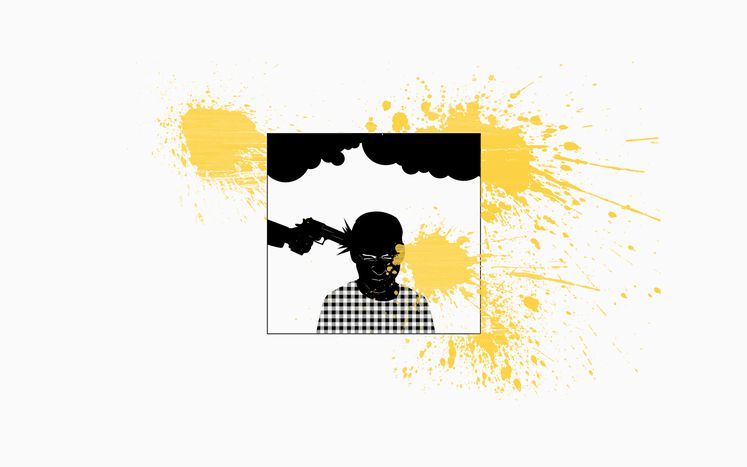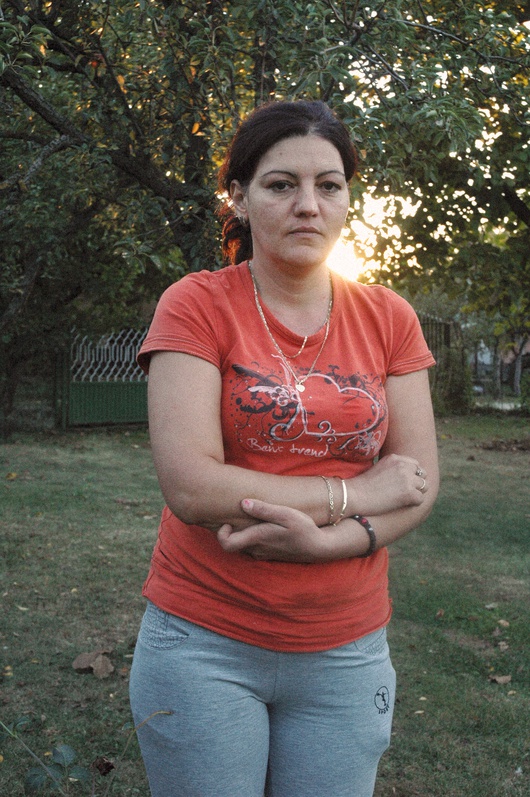
An Exquisite Corpse in the Land of Blackbirds: Chapter Six
Published on
Translation by:
Ida Sophie WinterIn the early 2000s, was Kosovo the site of organ trafficking, carried out by guerillas on Serbian prisoners? Silvana is familiar with insurmountable riddles. In fact, she – a woman who watched her husband leave and never return – knows them better than anyone else. A portrait.
VI - Silvana
It’s June 1999. The war in Kosovo, between a Serbia accused of ethnic purging and a UÇK (Kosovo Liberation Army — Ed.) fighting for the province’s independence, rages. After NATO’s bombardment of Serbia, international and KFOR (Kosovo Force — Ed.) forces land in the country; massacre, stealing and rape intensifies. Many belonging to the Serbian minority decide to flee. A young wife and mother of two children — one three-year-old, the other a couple of months —, Silvana doesn’t have a choice. She must remain. With two cousins and a van, her husband Bojan tells her he is “taking a road trip,” and begins driving toward Serbia on June 15.
He will never return. Silvana waits three summers, weathering protests and crime. She tries to keep a cool head and to hold her head high. One evening, a neighbour pays a visit. An Albanian, he’s a longtime family friend who often worked with Silvana’s husband in the Gračanica police force. “A trusted person,” she says. During the war, her neighbour was 'conscripted' into the Kosovo Liberation Army, the KLA, and obliged to collaborate under threat of sanctions. He recalls the scene he witnessed on the day of Bojan’s disappearance. On the national road toward the village of Guiraje, her husband’s van was stopped at a KLA checkpoint. The neighbour and husband recognised and greeted each other. The neighbour negotiates with the partisans to liberate Bojan. They refuse: “we need him as bargaining currency.” One of the three men is shot at close range. The others are captured.
 Her neighbour gives Silvana a list of names of KLA soldiers present that day. Silvana knows almost all who live in Gračanica. “And then he started crying, saying he couldn’t do anything.” Silvana does not shed a single tear. She turns to the international forces running the country, hoping they will carry out justice. “When I arrived at the local KFOR bureau, placed under British mandate, they told me that the region of the kidnapping was under American control. I went to see them. They sent me back to the English.” Due to conflict and chaos, the frontier between the zones isn’t clearly delineated. The mission admits its powerlessness. Silvana is furious. “I knew those who decided the fate of my husband, I still see them in the street!”
Her neighbour gives Silvana a list of names of KLA soldiers present that day. Silvana knows almost all who live in Gračanica. “And then he started crying, saying he couldn’t do anything.” Silvana does not shed a single tear. She turns to the international forces running the country, hoping they will carry out justice. “When I arrived at the local KFOR bureau, placed under British mandate, they told me that the region of the kidnapping was under American control. I went to see them. They sent me back to the English.” Due to conflict and chaos, the frontier between the zones isn’t clearly delineated. The mission admits its powerlessness. Silvana is furious. “I knew those who decided the fate of my husband, I still see them in the street!”
Her neighbour returns and mentions the existence of an illegal camp of Serbian prisoners, situated in a former elementary school nearby. He wonders if her husband is being held there, alive, only a few kilometres away. Silvana returns to KFOR. She tells her story to the soldiers, police, officials. She gives places, names and dates. Her neighbour agrees to serve as a witness. A few weeks later, a patrol is sent to the area. They find several clues but no bodies. The investigation is abandoned.
The 18-year-old brother of her neighbour is executed in “reprisal.” Serbs or Albanians, craven or weak, men or children, those who denounce or betray don’t have citizenship rights in the new Kosovo, independent and free, which the KLA promises to build.
In August 1999, UNMIK lands in Gračanica. Silvana again takes up her crusade. “I pounded on every possible door. My husband was a police officer: I know who works for the Kosovar and UNMIK police, I have witnesses, information.” She repeats her story, gives names of executioners. They explain her file is "lost," that it has "disappeared." The foreign staff succeed each other. Foreign soldiers sent to Kosovo were "children, young, without experience," laments Silvana today, without anger. Other international NGOs like the Red Cross take over the field, organise hotlines and even today, distribute aid packages to residents. Since she heard rumors about organ trafficking, largely relayed by Serbian media, Silvana doesn’t hide her disappointment. "We have never found his body, so everything is possible."
YOU JUST READ THE SIXTH CHAPTER OF OUR INVESTIGATION INTO ORGAN TRAFFICKING IN KOSOVO. DISCOVER THE NEXT CHAPTER OF THIS GREAT THRILLER EVERY TUESDAY THROUGHOUT THE AUTUMN HERE AT YOUR ONLY EUROPEAN MAGAZINE.
Translated from Cadavre exquis au pays des merles noirs : chapitre 6



